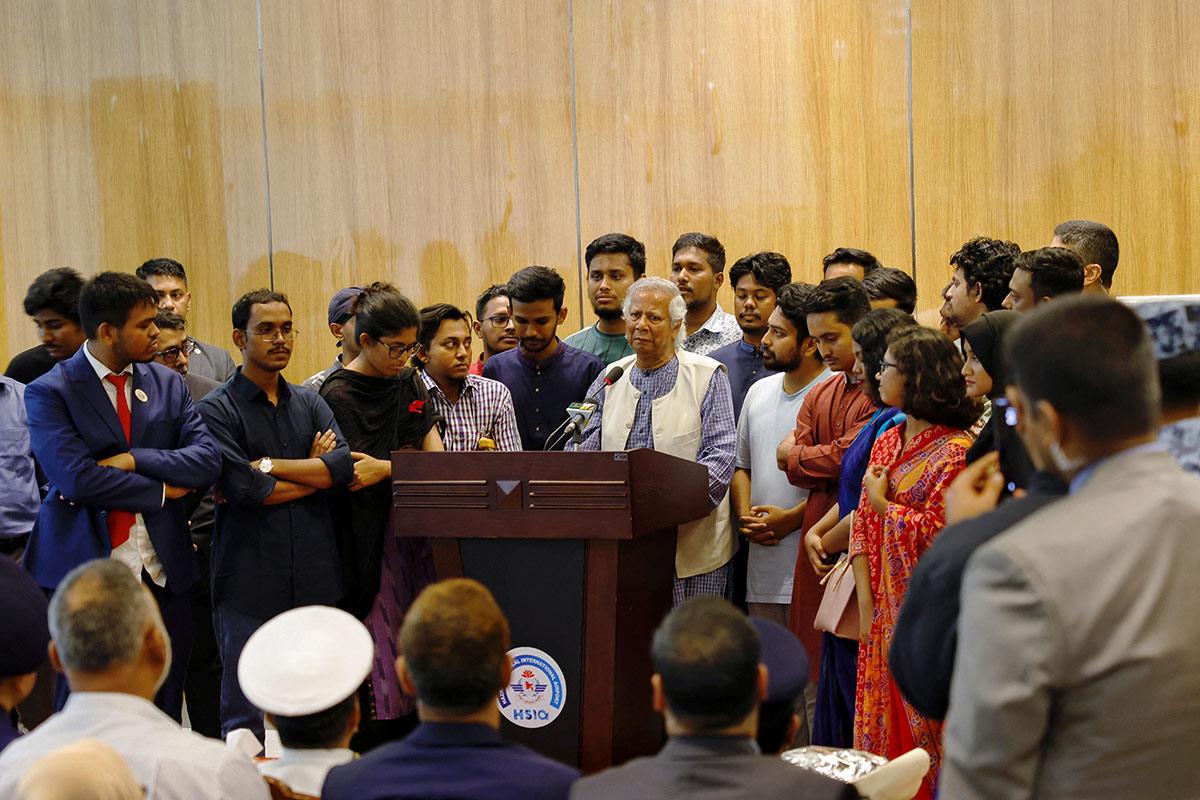People in Bangladesh have welcomed the new interim government led by Nobel laureate Muhammad Yunus, hoping it would restore order, end repression and hold a fair election to facilitate a democratic transition of power.
Yunus, 84, on Thursday took oath as the head of an interim government, replacing Sheikh Hasina who abruptly resigned and fled to India leaving the country in turmoil following deadly protests against her government over a controversial quota system in jobs.
He was sworn in as the chief advisor - a position equivalent to prime minister. Women's rights activist Farida Akhtar, right-wing party Hefazat-e-Islam's deputy chief AFM Khalid Hossain, Grameen Telecom trustee Nurjahan Begum, freedom fighter Sharmeen Murshid, chairman of Chittagong Hill Tracts Development Board Supradip Chakma, Prof Bidhan Ranjan Roy and former foreign secretary Touhid Hossain are among the advisory council members.
Dhaka University Professor Emeritus Serajul Islam Choudhury said that one of the duties of the interim government would be to restore order, which has been disrupted over the last few days following the fall of Hasina.
"The other task is to ensure the safety of citizens," The Daily Star newspaper quoted Choudhury as saying after the oath-taking of the interim government.
The government would also need to eliminate all forms of oppression and the culture of fear prevailing across the country, he said.
However, the main responsibility of the government, he emphasised, would be to hold a fair and acceptable election to facilitate a democratic transition of power.
Eminent jurist Kamal Hossain said, "The change that has happened was welcomed by everyone. There has been an extraordinary turnout at the event. Everyone feels that change has come.
"We hope they [members of the advisory council] will be able to address the new crises. People will expect a meaningful change -- let this be that change," he said.
Barrister Sara Hossain said: "My main expectation from this government is that it will enable substantial reforms to institutions in Bangladesh and clear the path for truth-telling about what has happened not only in the immediate past or the past few weeks but even over the last 14 years and before that."
The students' anti-discrimination movement was for reforms and against repression and these should be the interim government's main themes, she told the newspaper.
"What I perhaps am a bit troubled by is that, unlike previous years, there is no balance of political background and police. We obviously have no representation from (Hasina-led) Awami League. This absence of balance could cause a problem," she said.
Bangladesh has a secular Constitution, history and tradition, which has not denied any faith but encouraged pluralism, but the swearing-in today did not reflect that, she said, expressing hope that "it is not a sign of things to come." -- PTI
